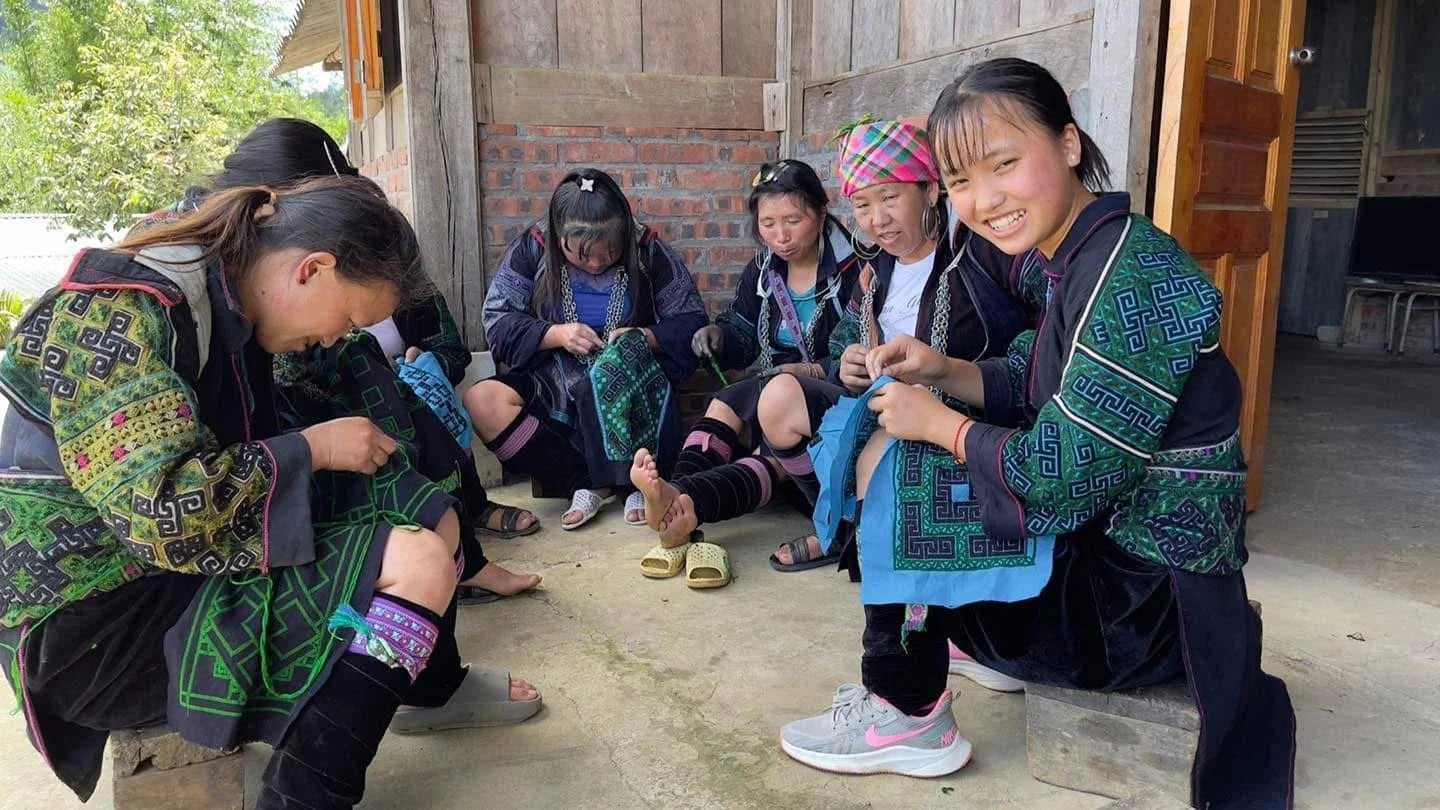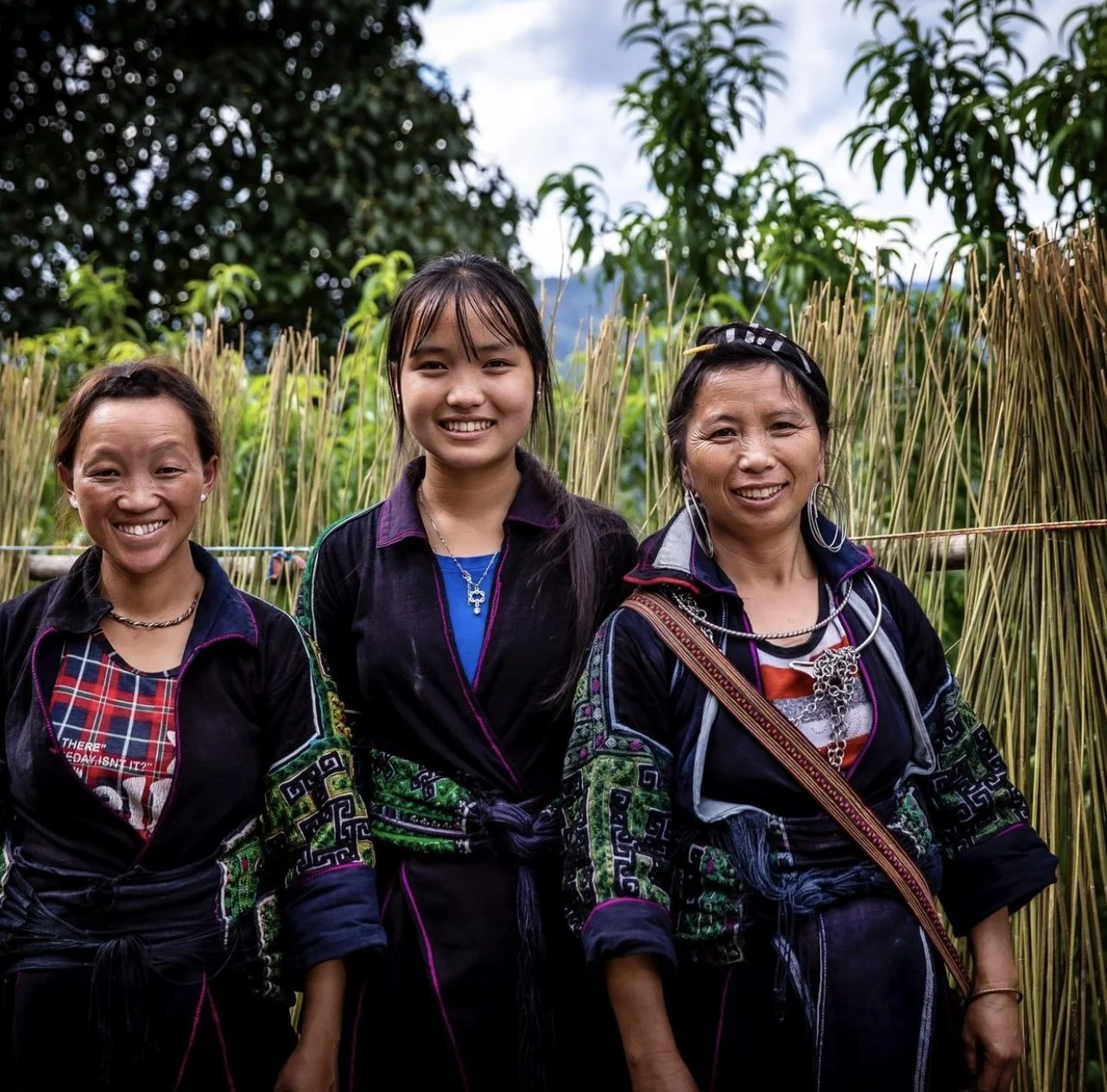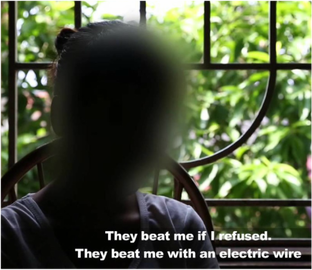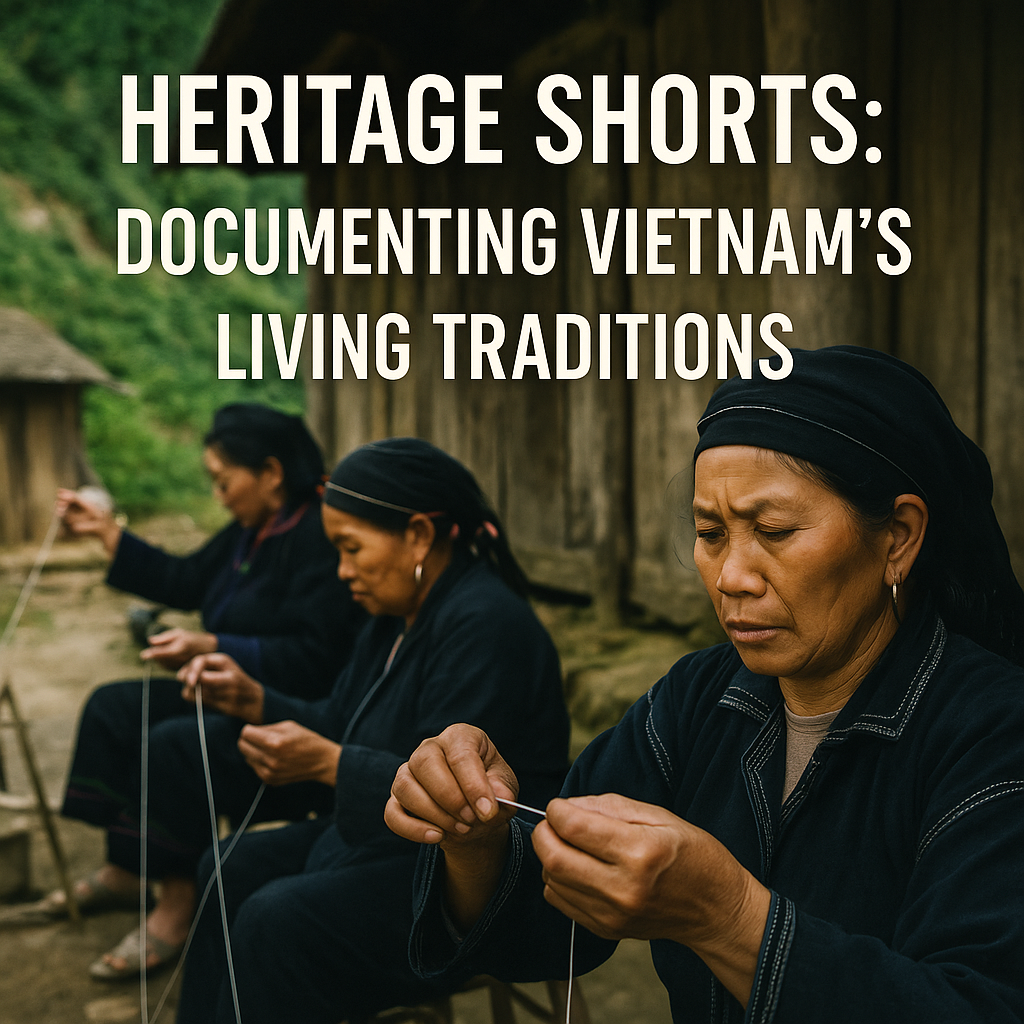
Social Responsibility
Empowering Communities Through Ethical Tourism: ETHOS Social Impact
Where Your Money Goes
When you travel with ETHOS, you do much more than book a trek or a motorbike tour. You become part of a living network that sustains local families, protects cultural heritage, and strengthens the Sapa community.
Investing in Community Projects
The final third helps sustain the community work at the heart of ETHOS.
This includes:
• Human trafficking awareness workshops - Helping vulnerable communities recognise risks and stay safe.
• Education programmes - Supporting ethnic minority youth with learning opportunities, resources, and pathways to brighter futures.
• Health and hygiene seminars - Promoting better health outcomes and well-being across the villages we work with.
• Healthcare support - Funding critical healthcare needs for individuals and families in remote communities.
These projects are delivered through our ETHOS community centre — a space built not just for travellers, but for the people who call this land home.
Why It Matters
We know you have choices when you travel. When you choose ETHOS, you choose:
• A company where profits serve people, not shareholders.
• A model where your adventure fuels real change.
• A journey that leaves a positive footprint behind.
Thank you for travelling with purpose.
Here’s how your journey creates impact:
Supporting Local Families
Around a third of your tour money goes directly to fair wages for our local guides, homestay families, and artisans.
We work with a team of 12 guides and support over 120 families across the Sapa region and many others across the Northern provinces. By choosing ETHOS, you help create meaningful, fairly paid work that uplifts entire communities and preserves cultural traditions.
Keeping Things Running
Another third covers the essential costs of running ethical, well-prepared adventures.
This includes:
• Safe transport and equipment
• Permits and logistical support
• The careful planning, risk assessment, and preparation that make your experience smooth, respectful, and memorable
We also prioritise sustainability; using locally sourced foods, minimising plastic use, and maintaining high rates of recycling to reduce our environmental impact.
For a full catalogue of our latest projects, please read here:
ethos_projects_-_new.pdf
ethos_projects_-_tieng_viet.pdf
Healthcare
At ETHOS, we believe that access to basic medical care is a fundamental right and so is being understood.
For ethnic minority communities, language can be a major barrier. That’s why we prioritise medical translation into local mother tongues. When people can describe symptoms, understand diagnoses, and ask questions in their own language, care becomes safer, more effective, and more humane.
Clear communication leads to:
• Fewer medical errors
• Better treatment outcomes
• Informed choices
• Greater trust in the system
No one should be left out of healthcare because of the language they speak.
Human Trafficking – Prevention and Education Campaign
Targeting vulnerable Hmong teenagers, our workshops are designed to educate and empower. Taught exclusively in Hmong language by young, female community leaders, classes aim to break stereotypes and challenge the issues behind the trade in young girls to China as brides or prostitutes. Our primary aim is that all of those in attendance leave knowing what human trafficking is and why it occurs. We also educate the girls about strategies used by traffickers and most importantly, how to better protect themselves and their peers. With a range of team building games and activity based learning, workshops take place over a full day. Session conclude with scenario based theatre empowerment
Hmong teenagers participating in ETHOS human trafficking prevention and empowerment session
Documentation of Traditional Cultures and Practices
Heritage Shorts is a documentary series dedicated to capturing the living traditions of Vietnam’s ethnic minority communities. Each short film offers an intimate look at unique crafts, practices, and rituals that have been passed down for generations. Together, they form a visual archive that highlights the resilience and creativity of communities whose heritage remains a vital part of the country’s identity.
Education and Literacy
We are providing accommodation, emotional support, security and educational opportunities for three Hmong women.ETHOS are now proud to be offering a 2-year tourism scholarship programme combining online study with hands-on training at our community centre in Sapa.
This special initiative is designed to support young Hmong and Dao women who completed high school in 2023, 2024, or 2025. The programme empowers participants with practical skills, confidence, and the opportunity to build a career in ethical tourism.
What’s included:
• Full tuition fees covered by ETHOS
• A basic living stipend throughout the programme
• Scheduled rest days
• Daily opportunities to practise and improve English with international guests
• Educational travel experiences within Vietnam
• Involvement in meaningful community support projects
• Access to essential study tools such as a laptop and transportation (if licensed)
• Comfortable accommodation and meals provided
• Guaranteed full-time employment with ETHOS upon successful completion
We welcome applicants who are passionate about learning, proud of their community, and motivated to help it grow and thrive.
Health and Hygiene Classes.
Watching our guide team grow into leaders is wonderful. Today, ETHOS guides led their first ever health and hygiene awareness class in Sa Seng Village. Leading on from the work of Projet Humanitaire Nord Vietnam, the class involved demonstrating the value of personal sanitation and included distributing soaps, toothpaste and tooth brushes.
With such high infant mortality rates in this part of Vietnam, classes such as this will genuinely save lives.
Training including a hygiene kit for every attending child costs just $1 each. We are looking for sponsors to continue these courses.
Literacy Classes
Some 171 million people could be lifted out of poverty if all students in low-income countries acquired basic reading skills. The majority of our community have received only a few years of schooling and are basically illiterate.
Education programs for children and adults alike will improve all aspects of life for local Hmong and Dao people. ETHOS run a program of intensive literacy and numeracy classes every few weeks which increases employment opportunities and allows villagers to become more independent.
A week of intensive training costs just $45 for a group of five learners.
Water, Sanitation and the Environment
People with water related diseases fill half the hospital beds in developing countries. One in six people world-wide does not have access to clean water.
Sanitation, access to clean water and health and hygiene issues are major development challenges. The majority of our region’s population lack adequate sanitation and most of the existing sanitation is unreliable, pumping untreated sewage into local rivers and drinking water sources. The result is high infant mortality rates and other issues attributed to water borne illness and disease.
Aluminium drinking water barrels for the ETHOS Community.
The goal of this project is to reduce the health risks of water related diseases and to lessen the need to purchase single use plastic bottles of water. Stage 1 will involve providing aluminium water barrels for 20 village homes to ensure boiled, clean drinking water is accessible not only to the immediate family but to ETHOS guests and other visitors.
Each water tank costs $20.
Composting Toilets
40% of the world's population still lives without access to toilets.
In the Sapa area, the installation of sewage systems is impossible, and the resulting improper waste disposal spreads devastating waterborne diseases that afflict many in our community.
ETHOS is currently trialing a compost toilet in a home in Lao Chai village. The system is cost-effective, eco-friendly, sustainable and suited to the village environment. The toilet has a drum that collects waste, reduces odor and the number of dangerous pathogens. The drum is emptied regularly and the compost is collected and used for various purposes.
We have combined the composting toilet with an adjoining spring water shower.
Cooking Stoves
The biggest killers here in Sapa are pneumonia and bronchial problems because Hmong homes are too cold, damp and smoky during the winter months.
ETHOS have been working together with University of Applied Sciences and Arts Northwestern Switzerland FHNW.
We began with consultation, talking to builders and local homeowners. We now have a number of stoves being trialled.
As this project rolls out, we are looking for a project manager prepared to commit at least three months to building replicas of our prototype.
ETHOS Book Bank
To further the reading skills of our guides and the wider Sapa community, we at ETHOS are looking to create a resource bank of reading materials to be stored in a community book bank.
We are initially looking for donations of children's books in both English and Vietnamese. If you have these kind of resources and are happy to send them to a new, loving home in Sapa, please get in touch.





















